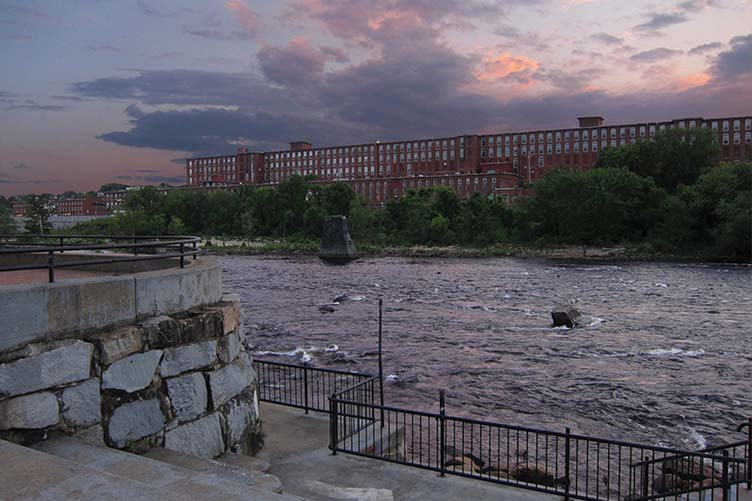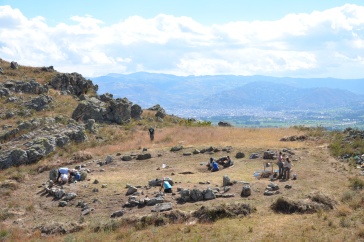
Photo credit: Cynthia Malbon
If early 2018’s stretch of sub-zero days and the string of nor’easters that punctuated March had you wondering if it was time to call off the warnings about a warming planet, UNH has some unwelcome news. Environmental models developed by researchers in the department of natural resources indicate that the effects of climate change could increase significantly by the middle of the 21st century — the year 2050 — and accelerate changes already manifest in a variety of ecosystem and weather conditions. In just one measure, models indicate that if carbon dioxide emissions continue at the current rate, the number of days New Hampshire sees snow cover may decrease significantly. At the same time, the number of summer days with a temperature above 90 degrees will increase, and up to 40 percent of stream habitats may become inhospitable to cold-water fish.
Natural resources associate professor Wilfred Wollheim, one of the study’s authors, notes that while the models were applied specifically to New Hampshire, the results are broadly relevant. “A number of things that people care about will worsen due to climate change,” Wollheim says. “For example, right now the average number of snow days is 60 per year, but in 20 to 30 years the models show that the number of snow days could be as low as 18 days per year.”
Published recently in the journal Ecology and Society, the team’s research found that along with a decrease in snow cover in the winter, potential impacts could include up to 70 summer days per year with temperatures of 90 degrees or higher by the end of the century, a greater probability of flooding, a considerable loss of cold-water fish habitat, and accelerated nitrogen inputs to coastal areas, which could pollute the water and deplete fish species.
Wollheim says the biggest impact will be around urban areas, near where people live. “Land use and population growth interacting with climate change are also important drivers,” he says. “These models can help guide efforts to adapt to the changing climate.” Alterations in land-use policy, including prevention of sprawl and investment in storm and wastewater infrastructure, are one way to reduce impact. Policies that regulate greenhouse gas emissions are also critical.
The UNH study, which focused on the Merrimack River watershed, is the first to be applied to a New England watershed that consistently accounts for climate change, land-use change, forest ecosystem processes and aquatic ecosystem processes (including variability in weather that occurs within and across years) to assess a whole suite of changes simultaneously.
Originally published in UNH Magazine Spring 2018 Issue
-
Written By:
Robbin Ray ’82 | UNH Marketing | robbin.ray@unh.edu | 603-862-4864
















































